When Silence Becomes Complicity: Genocide in Our Time
Sipping Truth, Stirring Change: Speaking Genocide Out Loud: Five Nations on the Brink as Global Attention Falters
We sip cocktails. We laugh. We share stories.
But what happens when the stories of others are silenced—by war, by oppression, by the machinery of genocide?
Across the globe, atrocities are unfolding in real time. They are not relics of the past. They are happening now, in Sudan, Gaza, Congo, Ethiopia, and Haiti. And the question hangs heavy: what will we do with this knowledge?
September 2025 – In an era of unprecedented global interconnection, a chorus of alarms from the world’s most fragile nations is going unanswered. From the resource-rich hills of the Congo to the besieged streets of Gaza, a confluence of brutal conflict, political failure, and catastrophic hunger is creating a maelstrom of human suffering on a scale rarely seen in modern history. Based on reporting from the United Nations and major aid organizations throughout the third quarter of 2025, the situations in the Democratic Republic of Congo, Sudan, Gaza, Ethiopia, and Haiti are not merely deteriorating; they are unraveling, pushing millions to the very edge of survival and testing the limits of the international humanitarian system.
Democratic Republic of Congo: A Perpetual Cycle of Violence and Displacement
In the eastern provinces of the Democratic Republic of Congo (DRC), a tragic story continues to unfold with renewed ferocity. The fight for control of the region's vast mineral wealth, primarily between the Rwanda-backed M23 armed group and Congolese forces alongside other factions, has escalated dramatically. The capture of key cities like Goma and Bukavu by M23 has not only shifted the military landscape but has unleashed a wave of human rights abuses against civilians, who are once again caught in the crossfire.
The consequence is one of the world's largest and most neglected displacement crises. Over eight million people are now internally displaced, a number that grows daily. They flee into already overwhelmed cities, straining resources and creating tinderboxes for disease. Cholera and mpox spread unchecked in overcrowded camps where clean water and sanitation are scarce. Aid agencies present a grim picture: their efforts are crippled by severe funding shortages, leaving them unable to meet the massive need for food, water, and shelter. Most chillingly, sexual violence is reported as a systematic weapon of war, disproportionately targeting women and girls, leaving deep physical and psychological scars on a generation.
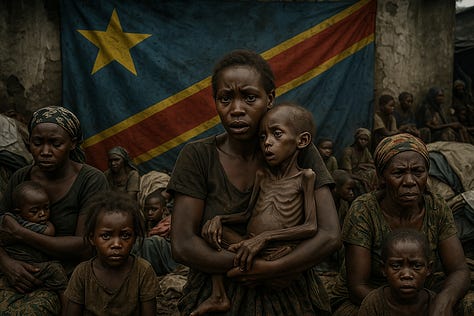
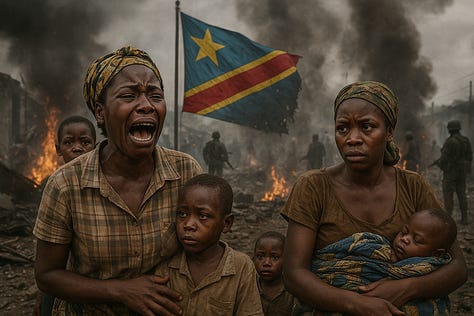
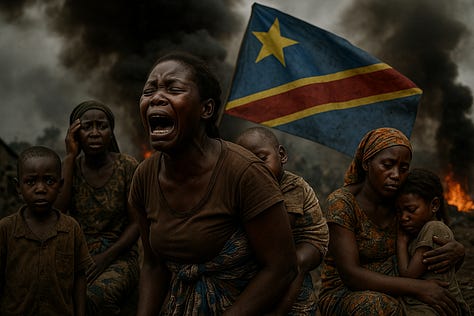
Sudan: The World’s Largest Hunger Crisis Descends into Famine
Since April 2023, Sudan has been consumed by a brutal civil war between the Sudanese Armed Forces (SAF) and the paramilitary Rapid Support Forces (RSF). This conflict has triggered the world's fastest-growing displacement crisis and now, its most severe hunger emergency. The war has displaced over twelve million people and brought life to a standstill.
In a grim milestone, famine has been officially confirmed in parts of North Darfur, a region with a tragic history of mass starvation. Millions more across the country face catastrophic hunger levels. This is not due to a lack of food, but a human-caused blockade of access: supply chains are shattered, markets are destroyed, and prices have soared beyond reach. A collapsed healthcare system and the absence of basic sanitation have fueled a massive and deadly cholera outbreak, further claiming lives among a weakened population. The crisis has bled across borders, destabilizing a fragile region as millions of refugees flee into Chad, South Sudan, and other neighboring countries that lack the capacity to help them.
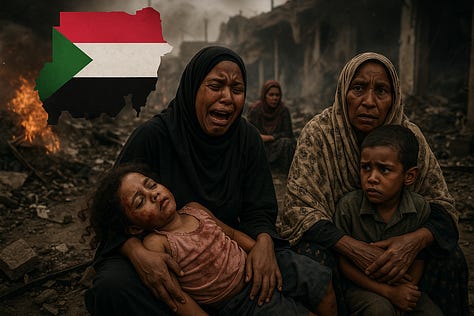
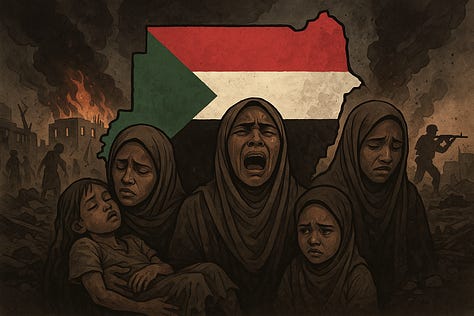
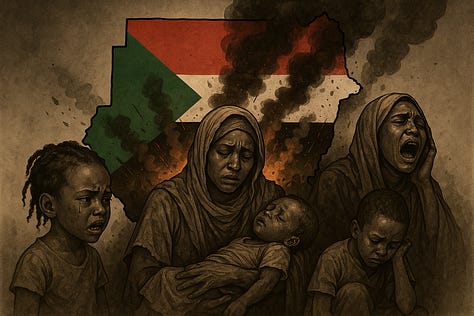
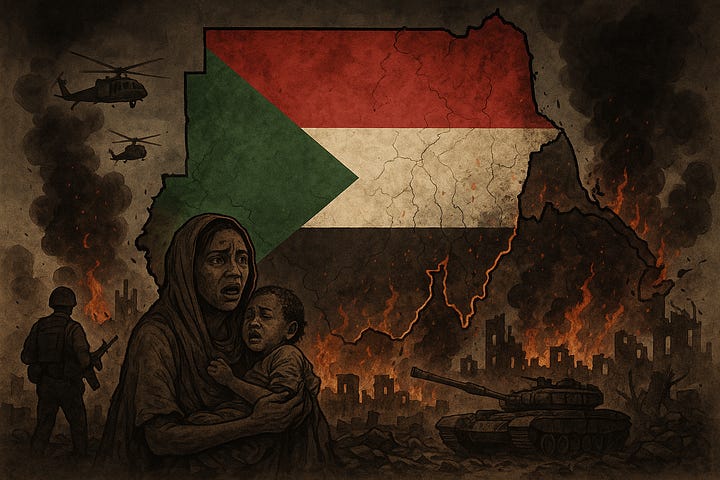
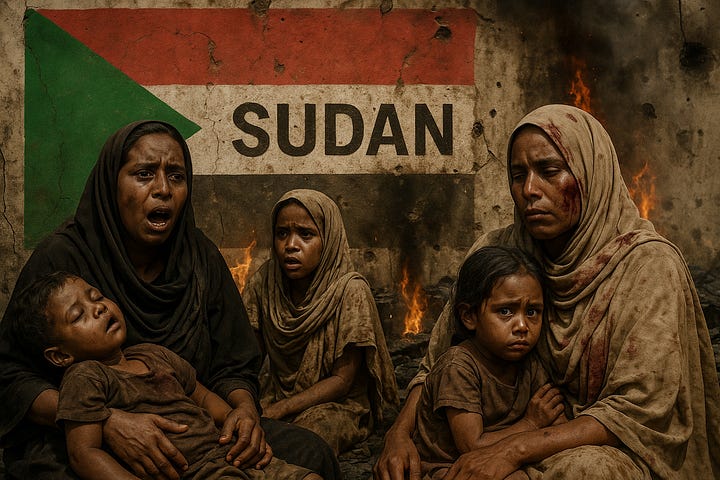
Gaza: A Catastrophic Man-Made Famine Under Siege
Following a temporary ceasefire earlier in the year, intensified hostilities and a renewed, stringent Israeli blockade have plunged Gaza into a deeper abyss. A formal famine has been declared in Gaza City, with other areas on the brink, in what aid groups describe as an entirely manufactured catastrophe. The blocking of sufficient aid has created desperate shortages of everything: food, clean water, fuel, and medicine.
The human cost is staggering. Israeli military operations continue to cause mass civilian casualties. Over 90% of the population has been displaced, many multiple times, in a landscape where homes, schools, and hospitals lie in ruins. The healthcare system has effectively collapsed; the few hospitals that are partially functional are overwhelmed, operating in the dark without essential supplies. New aid distribution schemes have proven lethally inadequate, often leading to chaotic and deadly incidents as desperate civilians attempt to access life-saving assistance. The population of Gaza is living through an unrelenting humanitarian hell.
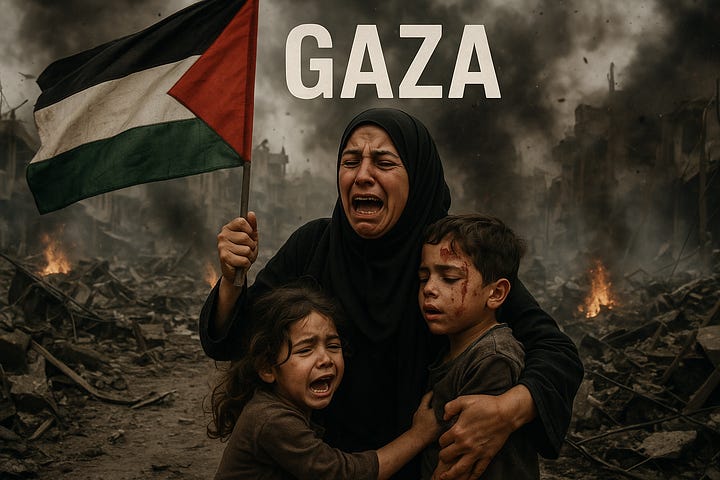
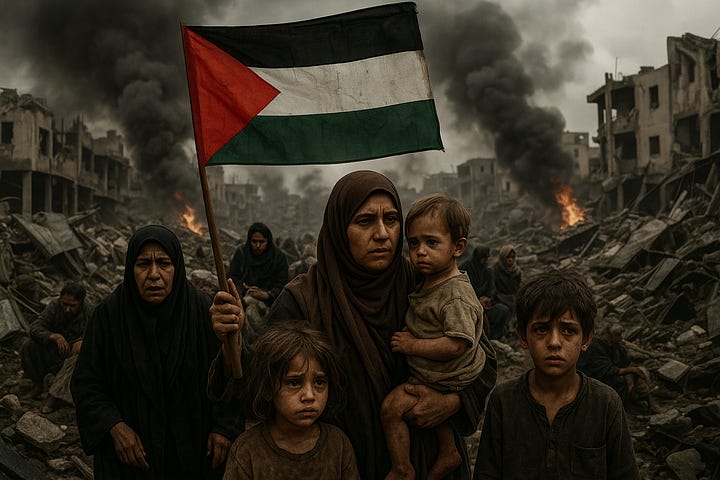
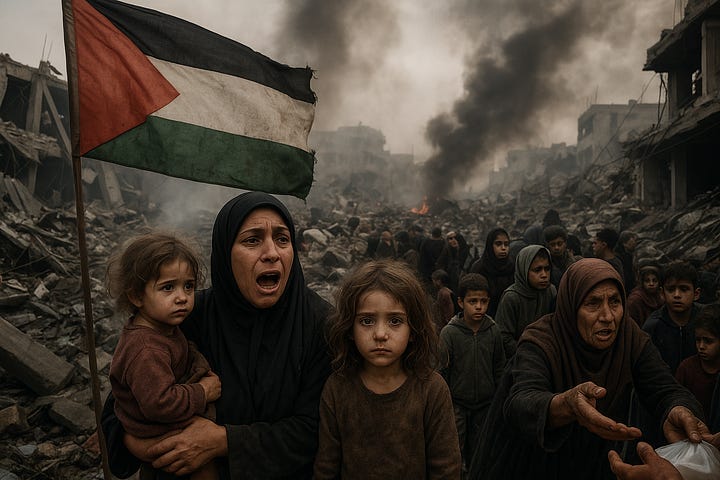
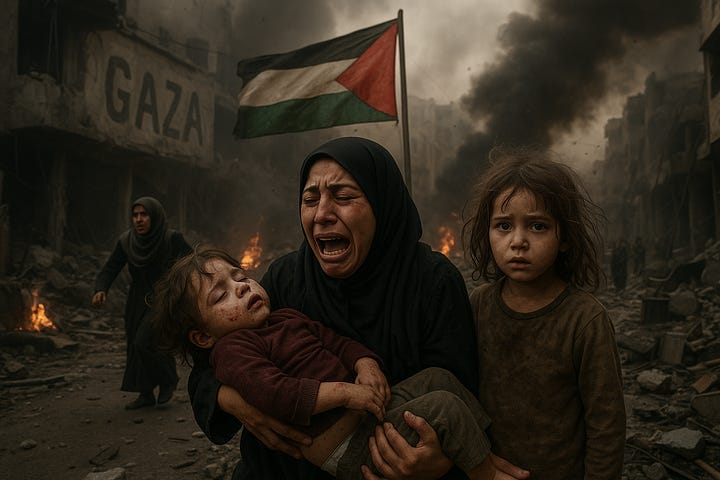
Ethiopia: The Precarious Peace Threatens to Shatter
Though the Tigray Civil War formally ended in 2022, Ethiopia remains a tinderbox ready to ignite. Violence persists, and regional insurgencies threaten to plunge Africa’s second-most populous nation back into widespread conflict. Tensions between the federal government and factions of the Tigray People’s Liberation Front (TPLF) have escalated into skirmishes, raising the terrifying specter of a renewed civil war, with Eritrea accused of fanning the flames.
Beyond Tigray, the country is fracturing. In Amhara, resilient Fano militias are locked in a bloody conflict with federal forces. In Oromia, the Oromo Liberation Army (OLA) remains active. These interconnected conflicts have left millions internally displaced from past and ongoing violence, entirely dependent on humanitarian assistance that is often impossible to deliver. Most alarmingly, tensions with Eritrea have soared, with both nations mobilizing forces along their shared border, raising the terrifying prospect of a regional war that would dwarf the current crises.
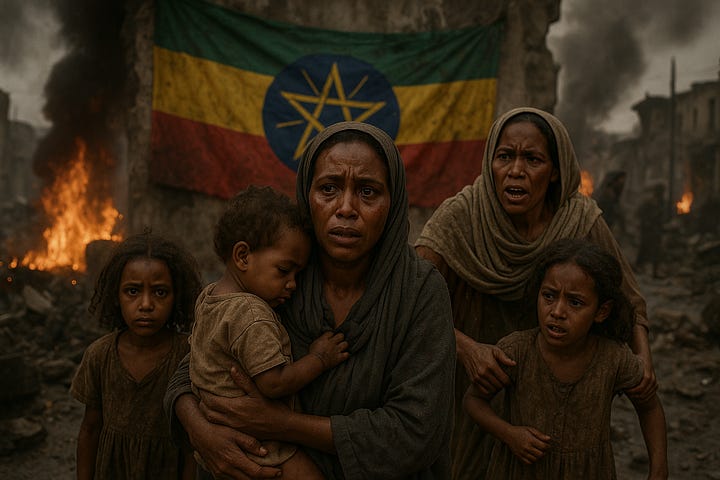
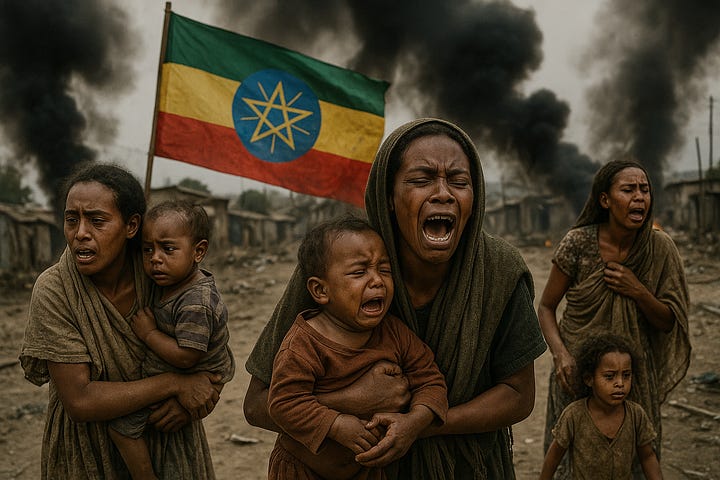
Haiti: A State Held Hostage by Gangs
Haiti’s profound governance crisis has culminated in a complete takeover by powerful, well-armed criminal gangs. They now control most of the capital, Port-au-Prince, having effectively overthrown the state and overwhelmed the national police. Reports from September 2025 detail massacres in suburban fishing villages and fierce clashes on the capital's outskirts, demonstrating the gangs’ reach and brutality.
A Kenyan-led Multinational Security Support (MSS) mission deployed over a year ago faces an almost impossible task: dislodging deeply entrenched and heavily armed gangs from urban centers. For the average Haitian, daily life is a struggle for survival against widespread violence, displacement, and a near-total collapse of the health system. An estimated 5.5 million people need assistance. Healthcare facilities are frequently attacked and suffer critical supply shortages. As in the DRC, sexual violence is used as a tool of terror and control, while constant insecurity inflicts profound and lasting psychological trauma on the entire population.
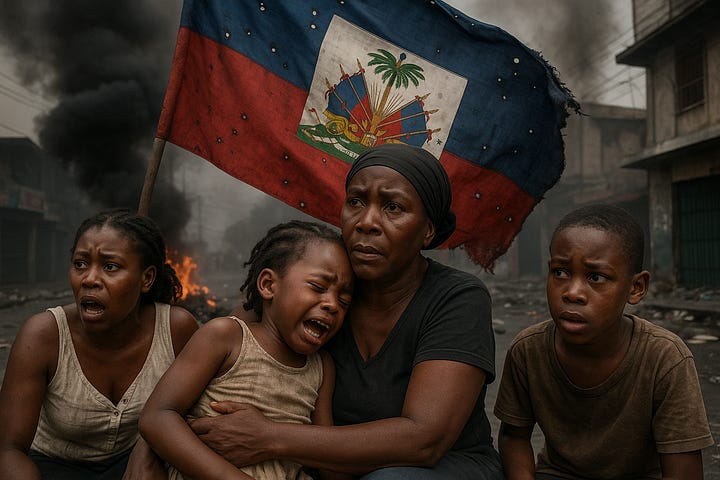
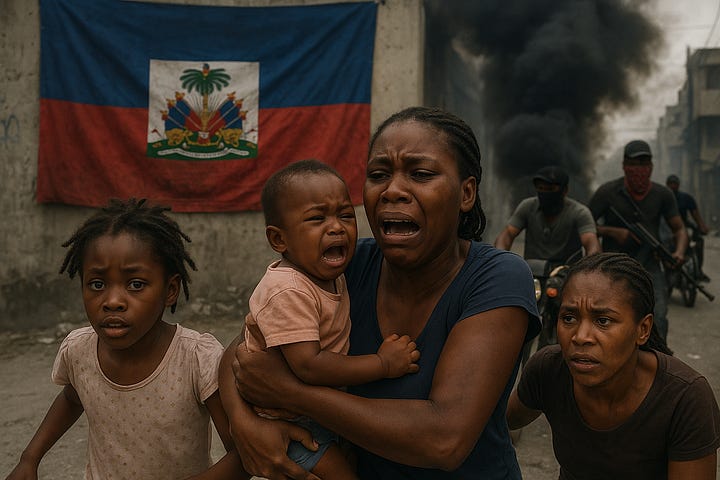
A Common Thread of Neglect
While each crisis has its unique triggers, common threads bind them: the weaponization of hunger, the systematic use of sexual violence, the collapse of essential services, and the failure of political will—both domestically and internationally. Aid organizations are operating in near-impossible conditions, chronically underfunded and often blocked from doing their work. The world’s attention, it seems, is elsewhere.
These five crises represent a collective failure. They are not natural disasters but the result of human action and inaction. As the UN and its partners issue increasingly desperate appeals, the question remains: how many more millions must suffer before the world decides to act?
Why We Must Talk About This
“Genocide” isn’t a word we use lightly. It is the deliberate destruction of a people—national, ethnic, racial, or religious. To name it is to strip away the veil of denial. To talk about it is to resist the apathy that allows it to thrive.
So here we are—gathered in community, with Qocktails & Qonversations, not just to laugh and sip but to reckon.
Because silence makes us complicit. Because hashtags aren’t enough. Because if we can share selfies, we can share stories. If we can curate luxury, we can curate justice.
The Call
Change doesn’t start with governments—it starts with us. With voices refusing to be muted. With conversations that ripple into movements.
So, let’s ask ourselves—and each other:
What does accountability look like in a world where genocide is livestreamed?
How can we support survivors and communities without reducing them to headlines?
What small act of resistance can I commit to today—whether it’s amplifying, donating, writing, or organizing?
Because one thing is certain: when history is written, silence will not be neutral. It will be betrayal.
✨ Pour another glass, lean in, and let’s talk. Our voices matter more than we’ve been taught to believe.


